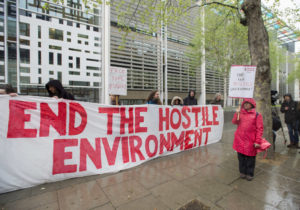North Dakota’s Radical Plan To End Property Taxes
For homeowners who lose their jobs, retire or take pay cuts, property tax is a “rent” that can cause financial crises or even homelessness. (Image: Adobe)
(Image: Adobe)
North Dakota may shake this country up in two weeks by ending one of the oldest taxes in America. Here’s the backstory and what it may mean to all of us.
When I was 14, I bought a single-house-lot of raw land outside of White Cloud, Michigan, for, as I recall, $25. The area had been a small town in the 19th century, but the town vanished, turned into a scrub field surrounded by forest, by the early 20th century. Locals told me they weren’t sure if the town had burned to the ground or was washed away in a flood (the land overlooked a creek).
I was able to buy that lot for such a low price because the county had put it up for auction after the previous owner failed to pay their property taxes. I was the only bidder, so I got it at the initial bid price. For two decades, I paid the property tax on it (typically around $20 per year), until a local resident offered me $500 for it, and I sold it.
The point of this story is that, unless you’re a church or other nonprofit, it’s not possible to actually own land in the United States. Every state, county and municipality in the country lays first claim to all of the land within its jurisdiction, and we merely rent the land under our homes; that rent is called property tax.
And when you fail to pay your property tax “rent,” as that previous White Cloud resident had, the government will simply repossess “your” property and “rent it out” (sell it) to somebody else.
Churches and many other types of nonprofits (hospitals, nursing homes, etc.) can own land because they’re exempt from taxation, including property taxes. But the rest of us are, in the final analysis, merely renters.
Unless you’re a church or other nonprofit, it’s not possible to actually own land in the United States.
This is particularly problematic for homeowners who lose their jobs, retire or are forced to take pay cuts; suddenly that property tax “rent” can throw them into financial crisis or even cause them to lose their homes.
Which is why some of the good citizens of North Dakota are trying to fix this situation by outlawing all property taxes in that state via statewide ballot (Measure 4). If they pull it off (a similar effort in 2012 was defeated), they’ll join a couple dozen other countries that allow citizens to fully own land without having to pay property tax “rent.”
They include: Cayman Islands, Fiji, Malta, Cook Islands, Monaco, United Arab Emirates, Dominica, Georgia, Bahrain, Kuwait, Liechtenstein, Oman, Grenada, Vanuatu, Saudi Arabia, Turks and Caicos, Sri Lanka, Faroe Islands, Qatar, Brunei, Croatia, Mauritania, and Seychelles.
John Locke, in the 17th century, was the first to propose that people should have a “natural right” to own land (although the Greeks and Romans had recognized this right for the elite).
In his “Second Treatise of Government,” written when most Europeans were landless serfs, he proposed that as long as there was “enough and as good left in common for others,” individuals should be able to own land and pass it along to their heirs. His writings became the foundation for modern property rights.
Property taxes also go back to the 17th century; the first in Europe was imposed in England when, in 1601 (the year the British East India Company was formed), Parliament passed the “Statute 43 of Elizabeth.” In the United States, property taxes were imposed by most state and many local governments within two years of the ratification of the Constitution in June of 1788.
Property taxes are generally used to fund local services, being the tax that’s “closest to the ground” (no pun intended), including police, fire, roads and schools. In many ways that has become problematic: those communities with the most dysfunctional police departments and poorly performing schools, for example, are typically those with the lowest property values and thus little revenue from property taxes.
On the other hand, the very local nature of property taxes tends to keep homeowners more closely in touch with activities performed by their local governments.
In 1977, Ireland ended property taxes for individual residences (they called them “rates”), although commercial properties were still taxed. The experiment wasn’t successful, though: within a generation property taxes were re-introduced, first with a “non-principal private residence charge” in 2009, followed by a “household charge” in 2012, and finally a full return to a “local property tax” in 2013.
Louise and I spent a week or two traveling around Ireland around the time they were repealing their property tax. We had rented a car and stopped a 50ish man walking along a dirt road in a tiny rural town to ask directions to a good restaurant/pub; he promptly jumped into our back seat and led us to his favorite place, where he and the locals taught us songs in Gaelic (we bought the drinks).
His name was Mike Mansfield, and it turned out he was the local postmaster, playing hooky from his job (and, it turned out, his wife). We spent the day together and, when the topic of property taxes came up, he said something I’ve never forgotten:
“Nobody should ever lose their gaff [home] just because they can’t afford to pay the government its annual whack.”
In many states here in America, we honor a variation on this principle by allowing people to keep their homes in bankruptcy (although wealthy people love to abuse the privilege by stashing their wealth in an expensive mansion, particularly in Florida).
Property tax reform is a hot topic in America and has been in a big way since 1978, when Howard Jarvis famously led the charge with Proposition 13 in California to cap property taxes, so long as a homeowner stays in their residence.
Because Prop 13 also froze property taxes for commercial property, it has led to some significant warping of the California business property market, but the state has not, so far, seen a serious move to repeal it.
The strongest argument against property taxes is the moral one: people should be able to own, not just rent, the land they occupy so their ability to live in their homes isn’t dependent on continued employment. There is also the concern that schools reflect the wealth of their local communities, locking poor communities into cycles of poverty resulting in part from underfunded and underperforming educational systems.
Another progressive argument against property taxes is that when local services are funded by state government they’ll tend to become more uniform across the state and will be paid for by income taxes, meaning those who can most afford to pay those income taxes will pick up the bill.
The strongest arguments for keeping property taxes are that they’re more directly under the control of local citizens (by voting in or out local officials who set the taxes or sometimes directly voting on the taxes themselves) and they reduce the burden on the state government.
The strongest argument against property taxes is the moral one.
North Dakota, for example, says it will need to raise around $3.15 billion in additional revenue during the first two years after a property tax prohibition is put into place. The wealthy people who largely control the political machines of the state are not looking forward to that in the least.
Data-licensing firm ATTOM reports in its 2023 property tax analysis covering 89.4 million American single-family homes that American homeowners and businesses paid $363.3 billion in property taxes last year, a 6.9% increase over $339.8 billion in 2022.
According to a 2023 University of Chicago Harris/AP-NORC Poll, fully 69 percent of Americans consider their property taxes to be too high; a majority claim that “middle income earners” are hit with the heaviest tax burden, as they don’t have access to the sophisticated ways the morbidly rich and churches (and pastors who claim their homes are rectories) can evade this form of taxation.
I’ve argued for years that we should disconnect property taxes from schools and police departments because, as mentioned, poorer communities tend to end up with underfunded, dysfunctional versions of both.
There’s also an argument to be made for a residential-property-tax-only version of California’s Prop 13 so, as neighborhoods increase in value, people aren’t forced out. Property taxes would only be reevaluated (possibly beyond small annual increases) when the property is sold, keeping neighborhoods intact.
That said, ending property tax altogether is probably a bridge too far, as Ireland discovered. But North Dakota may surprise us all.
Keep an eye on Measure 4 in North Dakota on Nov. 5. If it passes, it’s a certainty that similar ballot measures will begin to proliferate across the states that allow them.
This issue isn’t going away any day soon. And it deserves a serious reevaluation across most states.
Your support is crucial…With an uncertain future and a new administration casting doubt on press freedoms, the danger is clear: The truth is at risk.
Now is the time to give. Your tax-deductible support allows us to dig deeper, delivering fearless investigative reporting and analysis that exposes what’s really happening — without compromise.
Stand with our courageous journalists. Donate today to protect a free press, uphold democracy and unearth untold stories.






You need to be a supporter to comment.
There are currently no responses to this article.
Be the first to respond.